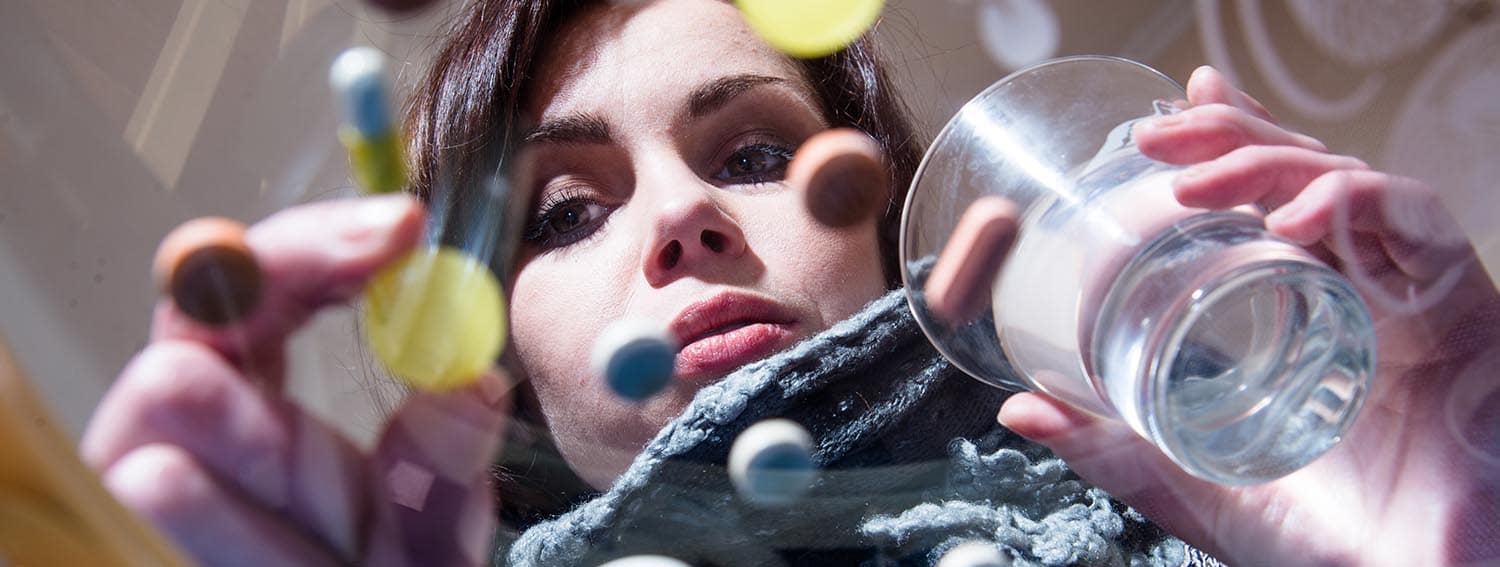
Addiction and mental health issues are deeply connected to the human brain. Roughly one in five adults in the United States was living with some form of mental illness, according to the National Institute of Mental Health. According to NIMH estimates in 2017, there were 46.6 million Americans living with at least one type of mental health problem. Many people turn to drugs or alcohol in an attempt to self-medicate their inner feelings from clinical depression, PTSD, bipolar disorder, schizophrenia, anxiety, or other types of mental illness. Sadly, these people will go on living their lives, without a proper diagnosis from a doctor. Many of these patients will turn to drugs or alcohol as a coping mechanism for their internal mental or emotional struggles.
Behavioral therapy, support groups, and other mental health services used to treat a dual diagnosis.
In the field of addiction treatment, when someone has a substance use disorder, coupled with another form of mental health issue, we call this a co-occurring disorder or a dual diagnosis. Sometimes addiction treatment alone is not enough. Many people who struggle with addiction also have a co-occurring mental health disorder that adds to their substance abuse problem. In a dual diagnosis treatment program, your treatment plan will be customized to meet your specific individual needs. A personalized addiction treatment plan is the best chance for a successful recovery in the case of dual diagnosis or co-occurring disorder.
Treatment for co-occurring disorders at a drug rehabilitation facility will commonly include a variety of physical, mental, and behavioral therapies. These are designed to work together on an individual basis, to help the patient with their mental health and to overcome their addiction. These will typically be conducted through a combination of individual and group therapy sessions.
Your treatment providers will work with you during your stay at rehab to formulate an aftercare plan that will help you stay focused on your recovery after you leave their direct care. Outpatient treatment programs, 12-step support groups and relapse prevention strategies will help you during this crucial, early phase of your recovery.
Detox from drugs or alcohol is the first step in diagnosing an underlying mental health issue.
Cognitive impairment from long term drug and alcohol abuse can often interfere with the proper diagnosis of mental illness. Once a patient undergoes a full medical detox, cleansing the chemicals from the body and mind, clinicians can start to assess the patient’s underlying mental health. This is a crucial part of addiction recovery, as many patients might not even realize they have been living with a mental health disorder. Some people have been using drugs or alcohol on a daily basis, filling up most of their daily life with intoxication. This can go on for years and years, without them ever realizing they have an underlying struggle with mental health.
When a patient finally experiences sobriety for the first time in a long while, the emotional stress can be very difficult to overcome. Stress, anxiety, sadness, and guilt are all commonly experienced when someone first enters addiction recovery services. This is why it is important for someone who struggles with drugs or alcohol to seek rehab from a professional treatment facility. These facilities should offer detox and recovery services for addiction treatment while a dual diagnosis drug rehab will offer help with emotional recovery, medication management, stress reduction, and other crucial mental health services. With the support of the right program, it is entirely possible to transform your life and rebuild yourself from the ground up.
To learn more about addiction treatment for people with underlying mental health issues, please visit Houston, Texas area drug recovery here: https://morethanrehab.com/2019/05/04/mental-health-and-addiction-treatment/